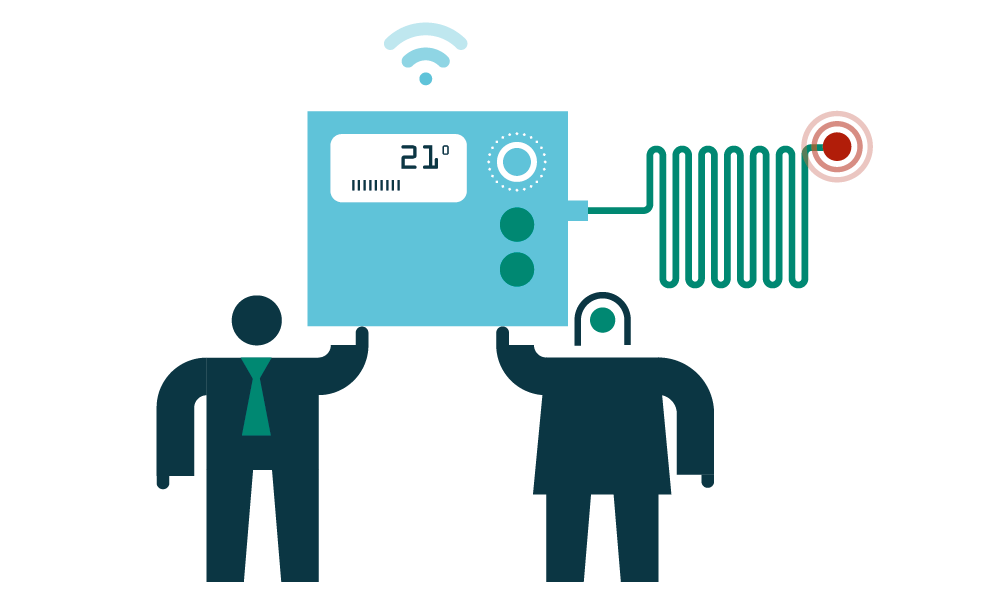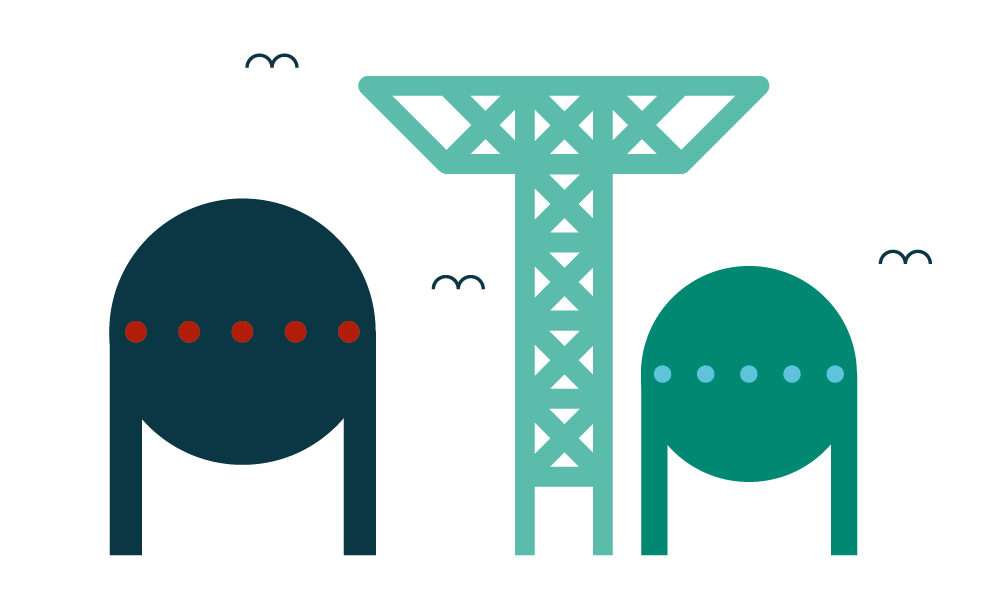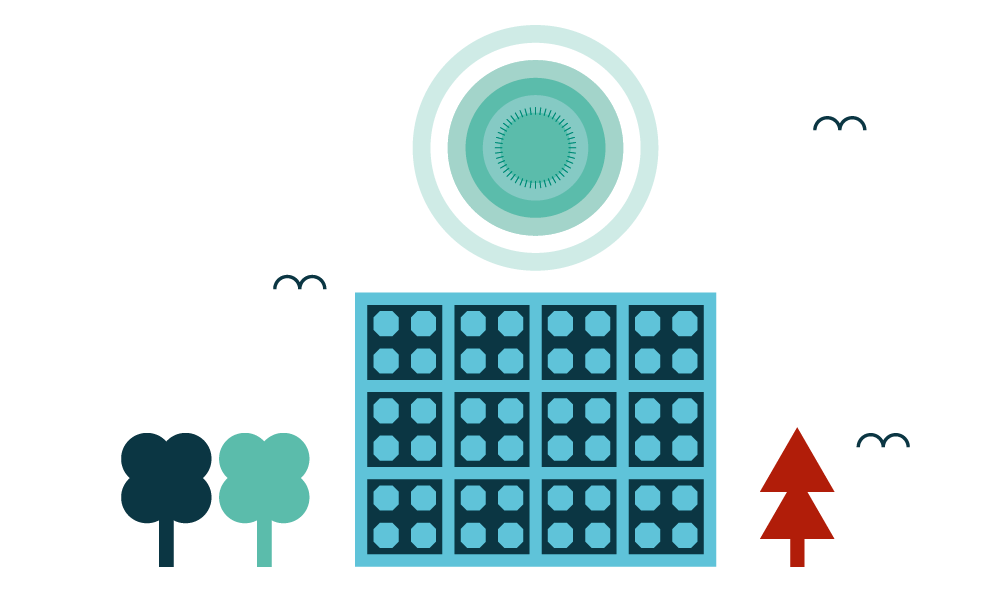1. Sale and purchase of electricity (PPAs)
Ensuring a competitive electricity price is currently a key challenge for all energy participants, particularly in the business sector. One of the solutions that guarantee price stability are PPAs (Power Purchase Agreements). They allow the purchase of energy generated from RES installations at a predictable and attractive price in the long term and with lower volatility than the market one. PPAs allow greater flexibility to tailor solutions to one's needs. They also do not limit the location of the potential generation source, which increases the possibility of obtaining the most favourable price offer. Given the duration of the contracts, it becomes essential to obtain the best possible terms and conditions.

CCPAs (corporate power purchase agreements)
Energy purchase directly from the generator is an alternative to owning one's own generation source. This can be done on the basis of a so-called CPPA/physical PPA, the duration of which is longer than that of standard contracts with energy suppliers. The object of the PPA is the actual supply of energy from the generator directly to the offtaker. A CPPA makes it possible to secure the supply of electricity over a longer time horizon (e.g. 10-12 years) at a specified price.
VPPA (virtual power purchase agreement)
Virtual power purchase agreements - so-called VPPAs - are also increasingly appearing on the market. However, the subject of such a contract is not the purchase of electricity. These are so-called 'differential contracts', the essence of which is that the parties settle for the difference between the price specified in the contract and the current wholesale price (SPOT price) for a fixed volume of electricity. In this case, the generator sells energy directly on the wholesale market or to a selected trading company. By guaranteeing the energy price at a certain level, VPPAs can be part of a company's energy strategy.
On-site model
Recent legal changes regarding direct lines allow the sale of electricity based on an on-site model, which involves the purchase of electricity from RES installations without using the public electricity grid. In such a model, electricity is delivered to the offtaker via a power line built by private investors. The liberalisation of direct line regulations facilitates the implementation of projects in the RES sector, and provides other method to ensure the supply of green energy and optimise company operating costs. This is particularly the case in areas where the grid infrastructure does not allow for new connections.
- How can we help you?
- we will assist in the preparation of the power purchase agreements;
- we will advise on the agreement negotiation process;
- we will provide support on regulatory issues, including those related to the implementation of the direct line model and electricity trading on the Polish Power Exchange (Towarowa Giełda Energii S.A.).
2. Electricity generation for one's own use (autogeneration)

Autogeneration of electricity means consuming all or part of the electricity generated for the generator's own use, without introducing the electricity into the public electricity grid. Under Polish law, electricity generation is a regulated business activity. However, in a model where the generator consumes the generated energy for its own consumption, it is in principle not subject to regulatory obligations. In particular, one is not required to obtain a proper licence or to enter to the register.
Surplus electricity not used by the generator may be introduced to the grid in order to sale it to third parties. However, it is important to note that such an activity will constitute a regulated business activity. In this case, it will be necessary to obtain an electricity generation licence or to obtain an entry in the register of small RES installations (MIOZE). At the same time, the introduction of energy to the grid itself should be preceded by verification of the availability of grid infrastructure and obtaining the necessary grid connection documents.
- How can we help you?
- We will assist in identifying regulatory obligations related to the generation and sale of electricity;
- we will support you in administrative proceedings before the President of the Energy Regulatory Office, in particular with regard to obtaining a generation electricity license (or a promise of such a license), making an entry in the register of small RES installations (MIOZE), or making a notification of the construction of a direct line;
- we will support you in proceedings involving grid connection conditions' issuance refusal;
- we will assist with the legal aspects related to the development of RES projects;
- we will support you in the preparation of agreements in the investment process, including development agreements (EPCs) and O&M agreements;
- we will provide support during the financing or refinancing process of RES investments.
3. Guarantees of origin

Apart from the abovementioned solutions there are also less complicated and quicker methods of obtaining green energy. One of them is the purchase of guarantees of origin.
Guarantees of origin are documents that certify that a certain volume of energy has been produced in a RES installation and subsequently introduced to the grid or delivered to a offtaker via a direct line. Guarantees of origin are subject of trade. This instrument improves the image of companies in terms of their environmental friendliness, making them a desirable commodity on the market, especially by energy-intensive companies that need guarantees of origin to meet EU standards. The transfer of ownership of guarantees of origin can take place as well as on the basis of a PPA.
- How can we help you?
- we will support you in the process of obtaining guarantees of origin;
- we will clarify legal uncertainties related to guarantees of origin;
- we will provide support on regulatory issues related to electricity trading on the Polish Power Exchange (Towarowa Giełda Energii S.A.).
4. PVaaS – PV leasing

An increasingly popular alternative to purchasing energy on the basis of a PPA or building one's own PV installation, is leasing or renting a RES installation under the so-called PV as a Service (PVaaS) model. In such a model, the RES installation is owned by a third party (a professional PV installation supplier) who makes the installation available on a service basis for the needs of another entity (usually a production company), e.g. by installing it on a roof or land indicated by the lessee. As a result, the lessee can use the electricity generated by the installation for its own needs on an autogeneration basis. At the same time, he pays a fee for the use of the installation to the lessor (e.g. in the form of monthly leasing instalments). The payment may include services related to the installation's maintenance. Upon repayment of all leasing instalments, the lessee usually has the option to acquire ownership of the installation. This solution enables the construction of a RES source for one's own use, but with the support of a qualified developer and without incurring significant one-off financial expenses. It should be noted that it requires the establishment of detailed cooperation conditions both at the stage of construction and operation of the installation, as well as the technical feasibility of such an investment, including a proper roof or ground area and location with regard to the required level of insolation.
- How can we help you?
- we will assist in the preparation of the necessary agreements, including the agreement for the provision of the installation (usually a leasing agreement or tenancy agreement), and advise on the process of negotiating them;
- we will provide support in the regulatory area, e.g. with obligations related to the construction of RES installations and the generation of electricity.






